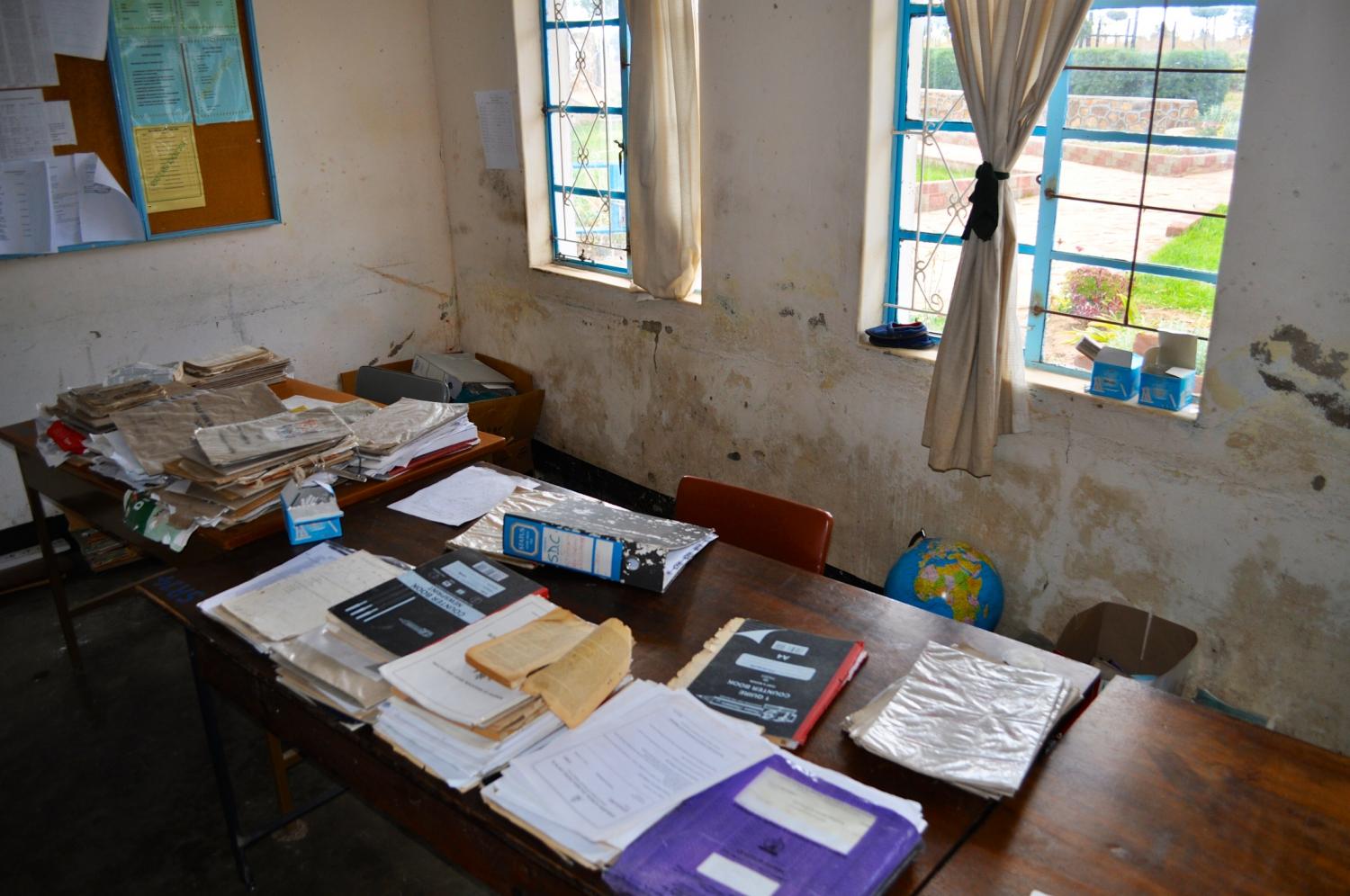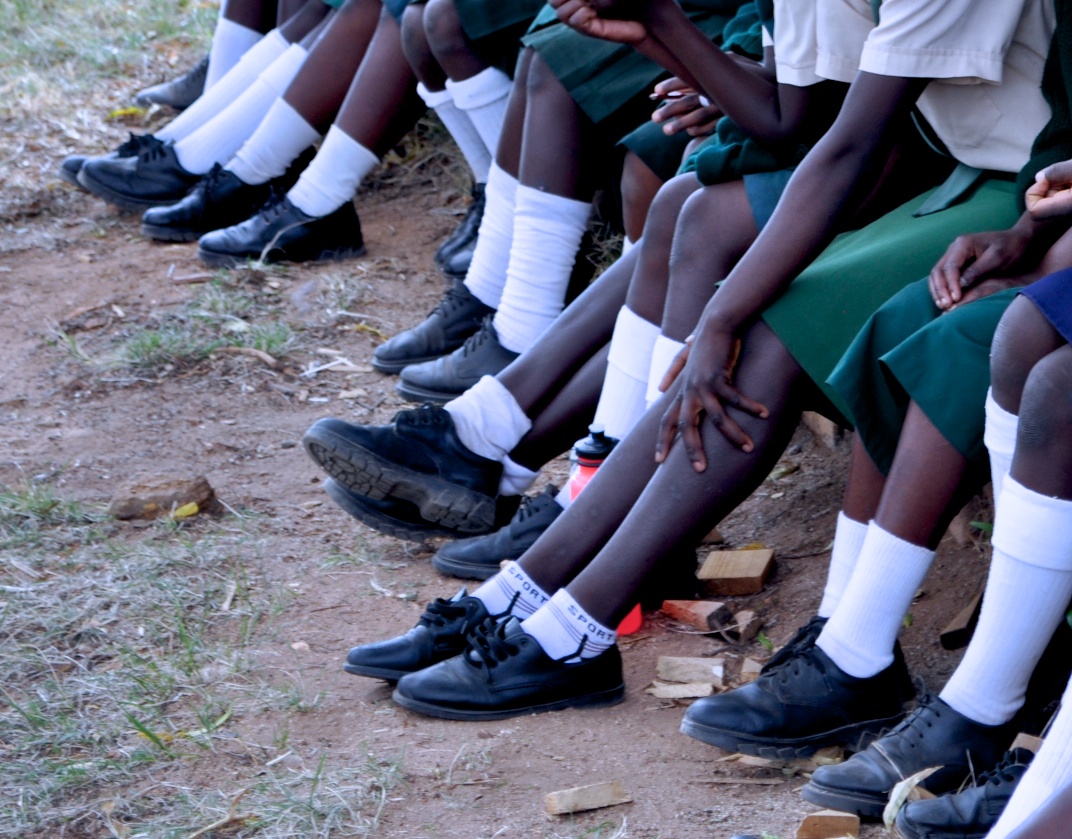

So much unrest across Africa. From the tragedy of Nigeria’s Chibok girls stolen from their school, to the violence and terror overtaking Kenya, there are forces aligned that are determined to bind women and compel men toward the unimaginable. Having been on the continent now for three months, I have sensed my proximity to these recent horrors, and I hold friendships with people who are much closer to danger than me. And it all just seems to keep happening. And it makes me wonder, “Where is the hope?”
Now, there are soldiers rising up in Zimbabwe.
They gather in remote settings, huddled together just outside of village centers. They each have their very own story that brought them here, but their common cause bonds them inextricably together as a single, formidable force. They operate alone, in small clusters, and larger groups, depending on the circumstances compelling their action. They routinely descend upon homesteads, schools and official district gatherings, where they command attention and make their demands clear. To be among them, they initially appear somewhat aloof and unengaged — until discussions turn to plans and plans turn to strategic promises. As I ducked my head under the canopy of the tent, pitched atop a hill overlooking distant ridges shadowing farms, there came a subtle hush. And I find that when I’m in their midst, I take great comfort in their cause. And I see very clearly where the hope we all seek resides.
* * *

In a village, there is a man who lives with his wife and their children. But he also has another young daughter, born to a prostitute. That young girl has been forbidden from the home by the man’s wife, so she has been raised by her grandmother. The wife has also refused to allow the girl to attend school. The child’s fate is known around the community, and five Learner Guides from Camfed‘s alumni network – CAMA – took it upon themselves to intervene in this young girl’s life to get her into school. It required them to confront the wishes of the strong-willed wife (the girl’s stepmother) who had ostracized the girl and refused her an education. It required them to stand in front of teachers and the school head to demand a chair for this young girl in their classrooms. And it required these five young women to marshal their collective resources to pay the necessary school fees. There is still a worry the stepmother could attempt to interfere, but the CAMA members have made it clear. “We are ready for war if she doesn’t honor our wish.” Today the young girl sits at a table next to her peers — studying, asking questions, and imagining about all kinds of new things thanks to the CAMA members who made her place in that classroom their cause.
* * *

She came across the teenaged girl sitting alone outside. School was in session, but this girl was not in class.
“Where are you going?” she asked. “Shouldn’t you be in class?”
“I am not in school,” the girl answered.
The girl went on to explain that she had been chased away from her school by its staff members. She had a friend who was abused by one of the teachers, and because she served as a witness in the court case against the teacher the school staff told her to leave. She also could not afford the school fees, and spent most days walking long distances in search of food for herself and her grandmother. CAMA members in the community organized to get the girl counseling, and they also met with the school leaders to get the girl back into classes. The local Mother Support Group — mothers working together to ensure the education of every child in their community by providing food and, in some cases, overnight boarding for children — also rallied to support the girl’s return to school and helped provide for her needs.
* * *

Life in the rural areas is predominately one of subsistence. From pre-dawn to beyond dusk, efforts are carried out to care for the homestead and provide for the family. From scavenging for firewood to plowing the fields, and from fetching water to tending to livestock, the pace is steady, purposeful and relentless. Every morsel of energy is expended deliberately to make a contribution.
In such a life, pursuits outside of the homestead are difficult to rationalize. And such is the case with a child’s education. After noticing one family’s child had dropped out of school, CAMA members visited the home to find out the reasons. The parents explained that the child was needed on the farm to carry out his chores to help provide for the family. Upon learning this, the young women helped organize other children from the boy’s class to visit the farm every day after school to help with the necessary chores so that he could be spared to go to class. Today, after the chores are finished, they all sit together and study to review the lessons from the day.
* * *

Their accounts go on and on…
“We are returning kids to school who had dropped out.”
“I babysit infants so their single mothers can attend class.”
“Most parents are not educated, so they don’t value an education. We tell parents about the impact of an education.”
“I grew up in poverty. I want to eradicate poverty.”
“I want to encourage girls to be self-reliant when they grow up.”
“Education is the cure.”
“I want to teach children about a better world.”
* * *
It’s hard for me to know what to say to the CAMA girls when I’m given an opportunity to speak to them. It’s difficult to come up with an adequate response to their testimonies. I find myself in such awe, every time. I’m conscious to try not to interfere in any way, and I struggle with how to contribute in any way. But after hearing the story about the young girl they had fought to get into school against her stepmother’s wishes, I needed them to know something.
“You would never hear a story like that where I come from,” I told them. “Not because there are no children like that, but because there are no girls like you.”
There are soldiers rising up in Zimbabwe…














